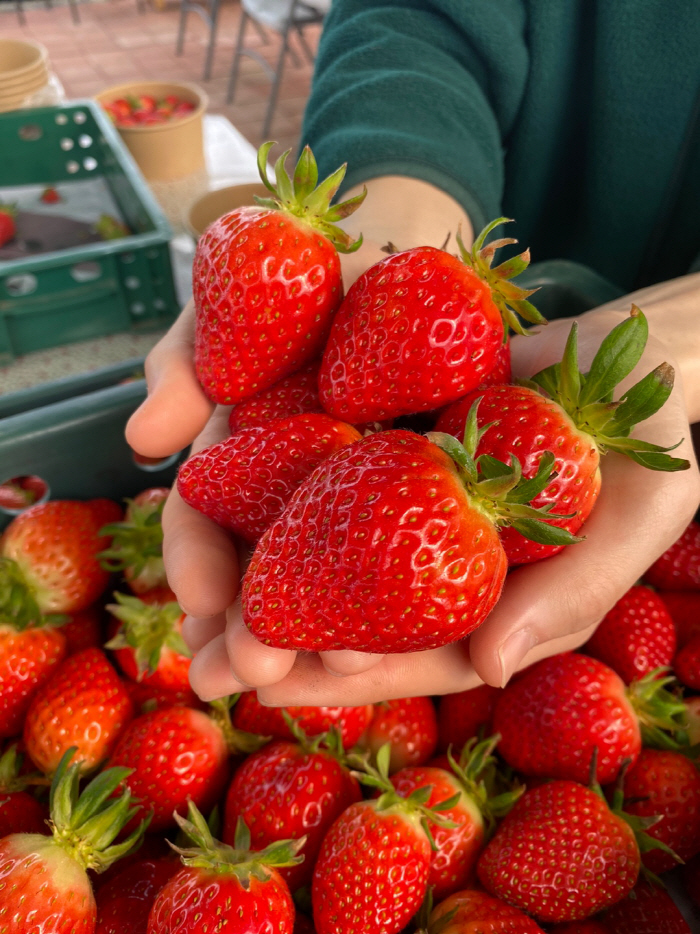Even preventing strawberry dementia in season
Dec 11, 2024
|
Not only the distribution industry but also the food and beverage industry are all introducing seasonal menus made of seasonal strawberries one after another.
Strawberries, called natural vitamins, can be consumed 100% of the recommended daily amount of vitamin C by eating about 8 a day. In addition, it is known that it is rich in polyphenols, lycopene, and anthocyanins that have excellent antioxidant effects, removing active oxygen, which is the cause of aging, and has anticancer effects.
In this regard, strawberries' 'hidden advantage' is that it helps prevent dementia. Experts believe that antioxidants in strawberries can reduce the risk of dementia by reducing inflammation and improving blood flow in the brain.
Strawberries contain picetine, a type of flavonoid, which suppresses cell destruction by free oxygen and prevents Alzheimer's through anti-inflammatory action. In addition, anthocyanin also improves blood flow in the brain and reduces inflammation, thereby activating brain function. Other nutrients in strawberries, such as vitamin A, also help improve cognitive function.
A study by the University of Cincinnati in the United States also found that among 30 people aged 50 to 65 who have mild cognitive impairment and are overweight, steady consumption of strawberries reduces the risk of dementia. The symptoms of depression have also decreased.
According to a follow-up analysis of 3,500 Japanese adults from 1980 to 2020, a study found that many soluble dietary fibers in berries, including strawberries, control the composition of bacteria in the intestine to prevent neuroinflammation, which is important for dementia.
In the United States, Tufts University researchers followed 2,800 adults over 20 years and found that those who consumed a lot of flavonoids, such as strawberries, had a 40% lower risk of dementia than those who consumed less.
This article was translated by Naver AI translator.














